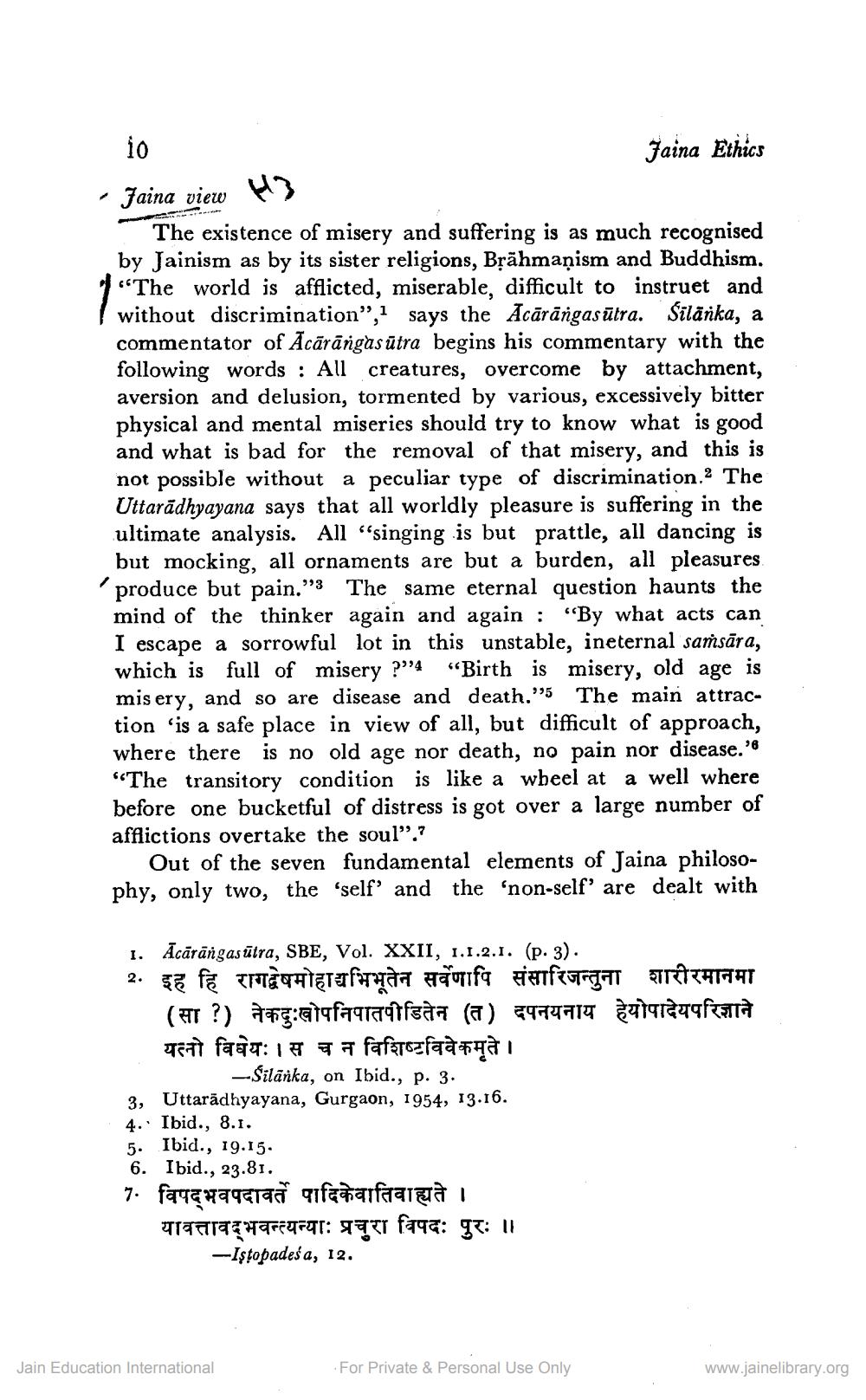________________
Faina Ethics
- Faina view H3
The existence of misery and suffering is as much recognised by Jainism as by its sister religions, Brāhmaṇism and Buddhism. of "The world is afflicted, miserable, difficult to instruet and | without discrimination”,1 says the Acārāngasūtra. Silänka, a
commentator of Ācārāngasūtra begins his commentary with the following words : All creatures, overcome by attachment, aversion and delusion, tormented by various, excessively bitter physical and mental miseries should try to know what is good and what is bad for the removal of that misery, and this is not possible without a peculiar type of discrimination. The Uttarādhyayana says that all worldly pleasure is suffering in the ultimate analysis. All "singing is but prattle, all dancing is but mocking, all ornaments are but a burden, all pleasures produce but pain.”3 The same eternal question haunts the mind of the thinker again and again : "By what acts can I escape a sorrowful lot in this unstable, ineternal saṁsāra, which is full of misery ??4 “Birth is misery, old age is mis ery, and so are disease and death." The main attraction 'is a safe place in view of all, but difficult of approach, where there is no old age nor death, no pain nor disease.'' “The transitory condition is like a wheel at a well where before one bucketful of distress is got over a large number of afflictions overtake the soul”.?
Out of the seven fundamental elements of Jaina philosophy, only two, the 'self' and the 'non-self' are dealt with
1. Ācārāngasūtra, SBE, Vol. XXII, 1.1.2.1. (P. 3). 2. इह हि रागद्वेषमोहाद्यभिभूतेन सर्वेणापि संसारिजन्तुना शारीरमानमा
(सा?) नेकदुःखोपनिपातपीडितेन (त) दपनयनाय हेयोपादेयपरिज्ञाने यत्नो विधेयः । स च न विशिष्टविवेकमृते ।
--Silānka, on Ibid., p. 3. 3, Uttarādhyayana, Gurgaon, 1954, 13.16. 4. Ibid., 8.1. 5. Ibid., 19.15. 6. Ibid., 23.81. 7. विपद्भवपदावर्ते पादिकेवातिवाह्यते । यावत्तावद्भवन्त्यन्याः प्रचुरा विपदः पुरः ।
--Istopadeśa, 12.
Jain Education International
For Private & Personal Use Only
www.jainelibrary.org




